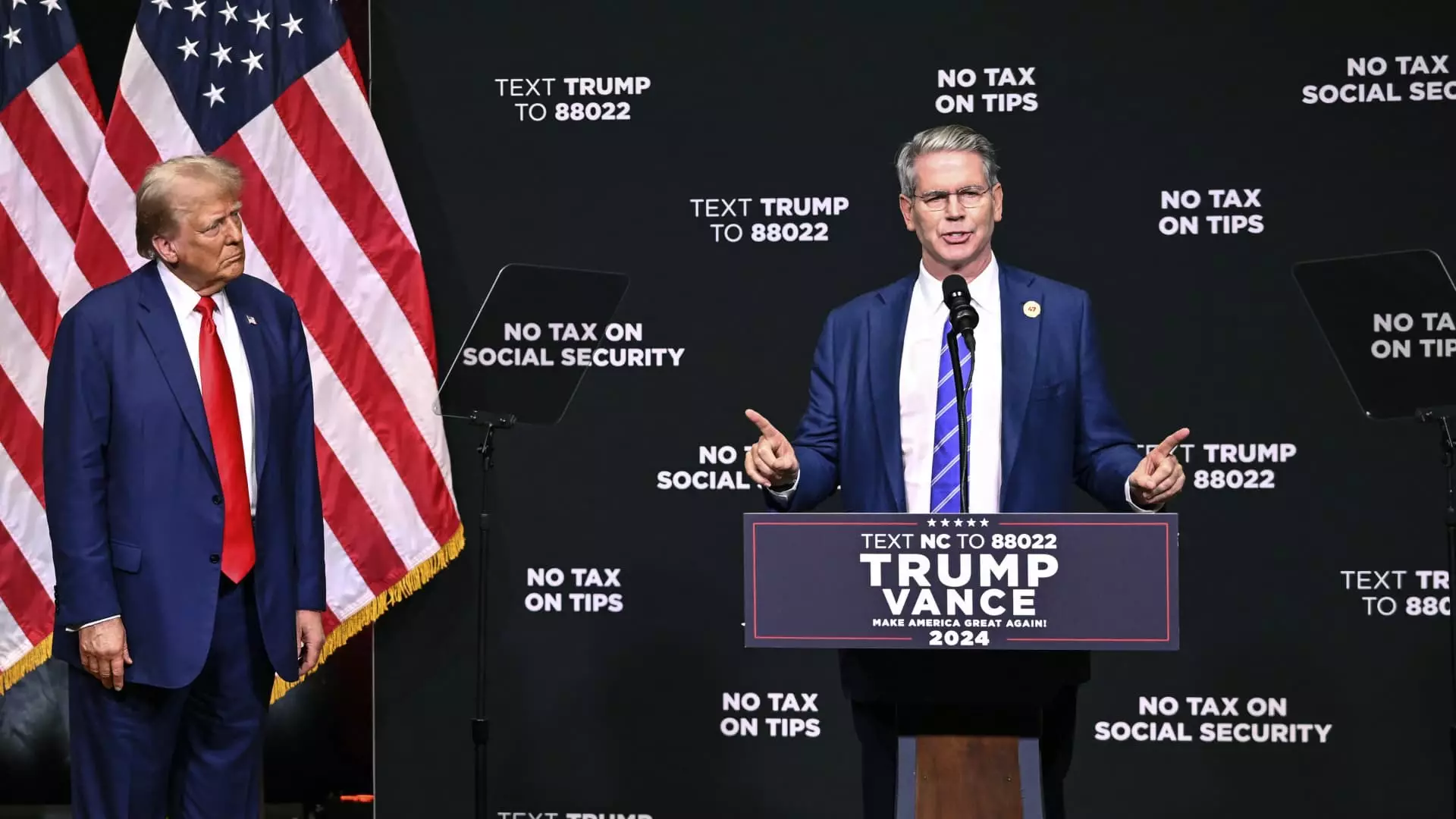The announcement surrounding President-elect Donald Trump’s anticipated nomination of Scott Bessent as Treasury Secretary marks a pivotal step in shaping the economic landscape of his incoming administration. Bessent, a hedge fund executive with significant Wall Street experience, embodies a blend of market acumen and loyalty to Trump’s economic vision. This article delves into the strategic ramifications of Bessent’s potential confirmation and the broader implications for U.S. fiscal policy amid mounting economic challenges.
Scott Bessent brings to the table an impressive resume as the founder of Key Square Group, which places him among the elite in the financial sector. At 62, he not only carries the wealth of experience necessary for the Treasury role but also aligns closely with the philosophies that underpin Trump’s economic agenda. Trump’s description of him as “one of the World’s foremost International Investors and Geopolitical and Economic Strategists” underscores the critical positioning Bessent would hold in overseeing the government’s financial operations.
With the U.S. facing significant economic hurdles, including an explosive national debt surpassing $36 trillion, the Treasury Secretary’s role will be vital in orchestrating policy responses. Bessent’s prior strategic roles, particularly his affiliation with George Soros’ fund as chief investment officer, present a dual-edged sword. While such experience equips him for sound financial management, it could present political challenges, especially amidst Trump’s insistence on a staunchly conservative economic stance.
Bessent will assume the Treasury role during a uniquely tumultuous period for the U.S. economy. The country is wrestling with not just a burgeoning debt, poised to reach an estimated deficit nearing $2 trillion by fiscal 2025, but also rising inflation concerns. Historically, Treasury secretaries have acted as both fiscal watchdogs and as architects of economic strategy, creating a role that requires deft management of fiscal policies and a deep understanding of global economic trends.
A significant component of Trump’s upcoming policies is his advocacy for manufacturing revival and energy independence, which resonates with Bessent’s professional interests. However, finding the balance between fostering growth through gradual tariffs and avoiding trade wars will require astute decision-making. In the face of international economic pressures, Bessent’s ability to analyze and respond to market dynamics will be put to the test.
While the prospect of Bessent’s nomination may signal a unified vision among Trump’s inner circle, it does not come without controversy. Reports indicate dissent among Trump’s advisors, particularly from influential figures such as Elon Musk, who have recommended alternative candidates like Howard Lutnick. This division raises questions about the broader acceptance of Bessent’s approach, especially concerning tariffs and trade policies. Critics within the administration have voiced concerns that Bessent has not been sufficiently assertive in supporting Trump’s tariff proposals, suggesting that internal alignment on critical issues may remain tenuous.
Additionally, there are implications regarding Bessent’s previous ties to Soros, which could provide ammunition for opponents who may wish to paint him as out of touch with Trump’s populist base. Trump himself has stated that Bessent’s policies will focus on competitiveness and rectifying unfair trade imbalances, but reconciling the past with the present opinions within the administration presents a formidable task.
The anticipated nomination of Scott Bessent as Treasury Secretary is emblematic of the Trump administration’s intent to lean heavily on seasoned professionals from Wall Street. The implications of this selection extend far beyond mere politics; they signal a strategic approach anchored in financial strategy as the U.S. navigates a challenging economic terrain. Whether Bessent can unify the differing factions within the administration, oversee the management of the national debt, and effectively champion Trump’s ambitious economic reforms remains to be seen. However, one thing is clear: the decisions made during this administration will ripple through markets for years to come, marking a significant chapter in the ongoing dialogue about America’s fiscal strategy and economic direction.


Leave a Reply